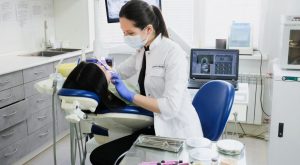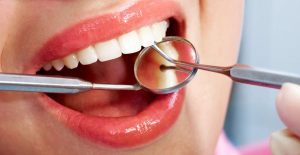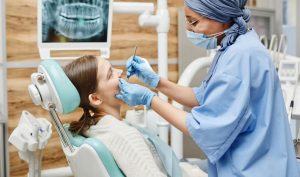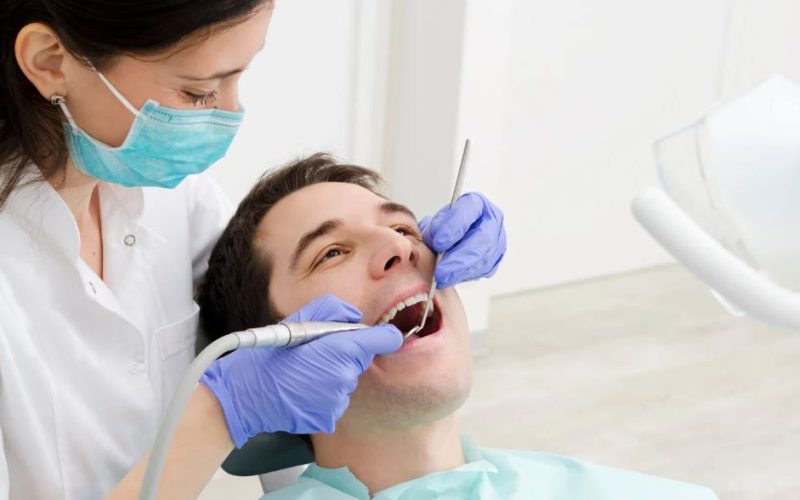Any businessperson looking to build a dental practice will need a plan, a budget, and some industry knowledge. The last of these points is where this guide comes in, and we’ve written it so that new practice managers can pick it up and run with it from day one.
Exactly what you want to hear when you’re looking to set the tone for a practice that can support the local area while becoming a robust and profitable business.
Most Common Dental Equipment for Beginners

Mirrors & Dental Explorers
Diagnostic equipment doesn’t have to be complex and electronic in many cases, and that’s typified by the success dentists have with simple adjustable mirrors.
These, and other exploratory instruments, can be used to investigate all manner of complaints and ailments quickly and easily in many instances. Having an ample supply will make sure that the bigger picture can quickly be acquired.
Periodontal Probes
Pockets and gum disease will quickly develop in many of the hard-to-reach areas of the mouth, and they will often be largely hidden from view. This means that patients typically become aware of them when they result in unbearable pain.
Dentists can solve this issue by offering regular appointments, and to do so, they need to be equipped with a comprehensive range of periodontal probes.
Practice managers who liaise with their care team to determine the probes they prefer to use will be making a real difference to the lives of patients.
Scalers & Excavators

The use of scalers to remove buildups and excavators to remove damaged or rotten teeth is commonplace, and therefore every practice will need a plentiful supply of such instruments.
They typically come in a variety of sizes and orientations, allowing dentists and hygienists to adapt to the many variables that they will encounter when treating a constant stream of patients.
Practice managers who want to know more are encouraged to talk directly with their senior dentist to understand how small differences in instruments can really matter.
Having a greater understanding of the constraints of different designs and the needs of different patients can really help when equipping the practice the right way.
Precision Handpieces
Handpieces are used for precise and highly specific work on teeth, such as shaping, and need to be ergonomic and easy to control. Many different head attachments are available, with each dentist having a few options that they prefer over the others.
Having these types of discussions with the dental care team will help beginners and administrators understand what is important when sourcing new equipment.
Root Canal Instruments
Dentists can source their preferred choice of apex locator for root canal procedures by connecting with an established nationwide supply of specialist dental equipment. Having a locator that offers optimal precision and control is essential for achieving positive patient outcomes.
Exploring different sizes, shapes, and geometries that are on offer can help beginners understand the options that are out there and the benefits of each.
Adjustable Dental Chairs

Perhaps the most obvious piece of equipment is the dental chair, but how many of us think about the range of functionality that it needs to provide? It has to be easy to wipe clean for hygiene reasons, be fully adjustable to help the dentist focus on what they do best, and be comfortable to help put the patients at ease.
Dental chairs are highly specialised pieces of equipment that come in a wide variety of different styles and configurations. Talking to the practice’s senior dentist will help you figure out which make and model is best suited to the job at hand.
Specialist Dental Lighting
The use of overhead lighting that can be quickly and easily moved into place is something that anyone who has visited the dentist will remember. Sourcing lighting from specialist providers is important because it will ensure that the correct level of illumination and brightness can be achieved.
Many practice managers choose to look at lighting at the same time as looking at dental chairs to make sure the two are fully compatible with one another.
Conclusion
As a new practice manager, it’s safe to say that you have plenty of things on your to-do list right now. This guide has been written so that you can get up to speed with some of the fundamental instruments and equipment your practice will need without delay.
Work through it one section at a time, connect with a specialist national supplier of dental equipment, and then build your processes and schedules accordingly. If you do that, you will soon have a business that runs like clockwork behind the scenes.









